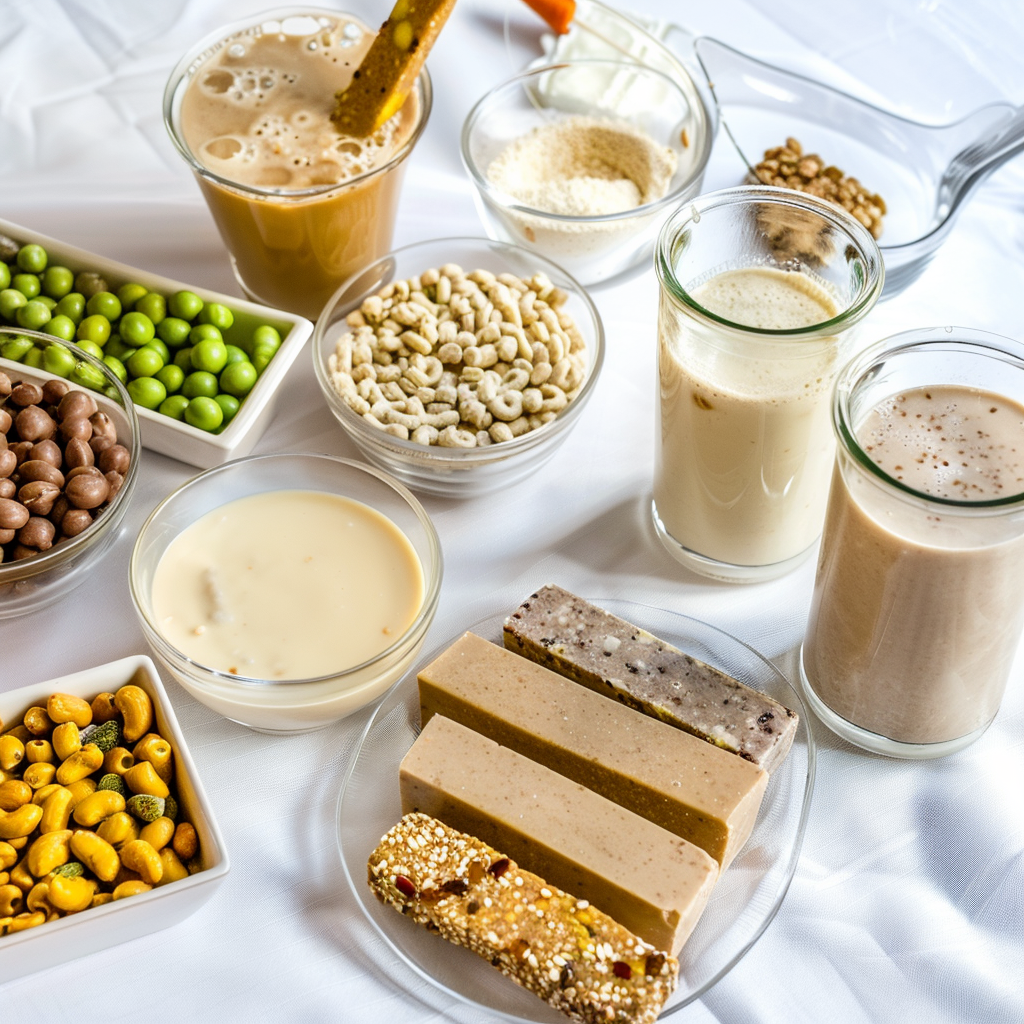Your cart is empty
Bariatric Phase 2: Full Liquids & Puree Foods
Bariatric Phase 2 introduces full liquids and smooth purees to rebuild nutrition with 60-80g of protein daily while protecting your healing stomach. Lasting 2-4 weeks, this stage emphasizes small, frequent meals and hydration to transition safely toward solid foods. We've created this collection of foods to make searching for phase 2 products much easier for you.
Shop Other Bariatric Phases: Bariatric Phase 1 - Clear Liquids | Bariatric Phase 3 - Soft Foods | Regular Bariatric Foods
Brand
Dietary Concern
Product Type
After clear liquids in Phase 1, Phase 2 - the full liquids and purees diet - advances your bariatric recovery by introducing thicker, nutrient-dense options to continue healing and muscle preservation. This stage, typically lasting 2–4 weeks (starting around day 7–14 post-surgery and up to week 4–6 at home), emphasizes high-protein intake (60–80g daily) while keeping textures smooth and easy to digest, bridging the gap to solid foods.
Key Guidelines for the Full Liquids & Purees Phase:
-
Allowed Foods & Drinks: Opaque liquids that liquify at body temperature, plus smooth purees (applesauce consistency, no chunks). Prioritize protein sources. Examples include:
- Low-fat milk or lactose-free alternatives
- Protein shakes or smoothies (whey/casein-based, 15-20g protein/serving)
- Greek yogurt (plain, low-fat; strained if needed)
- Pureed lean proteins (blended chicken, turkey, fish, eggs, or cottage cheese)
- Vegetable soups (blended, low-sodium; e.g., butternut squash, carrot)
- Fruit purees (unsweetened applesauce, mashed bananas; limited portions)
- Protein-fortified puddings or custard (sugar-free)
- Protein & Fluid Goal: Aim for 60-80g protein daily (start with shakes if needed) and sip 64 oz total fluids (1-2 oz every 15 minutes while awake, separate from meals by 30 minutes). Track to support healing and prevent constipation.
- Avoid: Chunky textures, high-fat creams, sugary items (>5g/serving), carbonated drinks, alcohol, caffeine, or fibrous veggies/fruits (e.g., raw or stringy produce); nothing that requires chewing.
- Tips for Success: Eat 4-6 small "meals" (2-4 oz each) over 20-30 minutes; blend with water/milk for smoothness; rotate flavors to stay motivated; continue chewable multivitamins with calcium. Advance to Phase 3 (soft foods) when tolerating 60g+ protein and 64 oz fluids comfortably.
This transitional phase boosts nutrition and energy while protecting your pouch, embrace the variety for steady progress. Stay consistent for smoother sailing ahead. Always personalize with your medical team’s advice.
Phase 2 is where real nutrition begins. focus on protein to heal and thrive. Small, frequent sips and purees prevent setbacks; patience here pays off in lifelong habits.
— Dr. Kevin Huffman, Bariatric Physician
Frequently Asked Questions
How long does bariatric phase 2 last?
The bariatric phase 2 diet typically lasts 2-4 weeks after surgery, depending on your procedure and tolerance. Most patients transition to phase 3 (soft foods) around week 4-6 when comfortably meeting protein and fluid goals without issues.
Can I eat pureed foods right away in phase 2?
Start with full liquids for the first 1-2 weeks, then introduce purees (e.g., blended meats or veggies) once tolerating liquids well. Ensure everything is smooth-no chunks-to avoid irritation.
How do I hit my protein goal on full liquids?
Use high-protein shakes (15-20g/serving) as staples, supplemented by Greek yogurt or pureed proteins. Aim for 20-30g per meal; track daily to reach 60-80g and prevent muscle loss.
What if purees cause nausea?
Go back to full liquids temporarily, sip slower (20-30 min/meal), and check portions (2-4 oz max). If persistent, contact your team, could signal overeating or texture issues.
Can I have milk or dairy in phase 2?
Yes, low-fat or skim milk is allowed in shakes or diluted, but introduce slowly, some experience lactose issues post-op. Opt for lactose-free if needed; avoid full-fat creams.
When can I progress to phase 3?
Typically when you can consume 60g+ protein and 64 oz fluids daily comfortably without nausea, around week 4. Always confirm with your surgeon's timeline and follow-up.
- Choosing a selection results in a full page refresh.
















